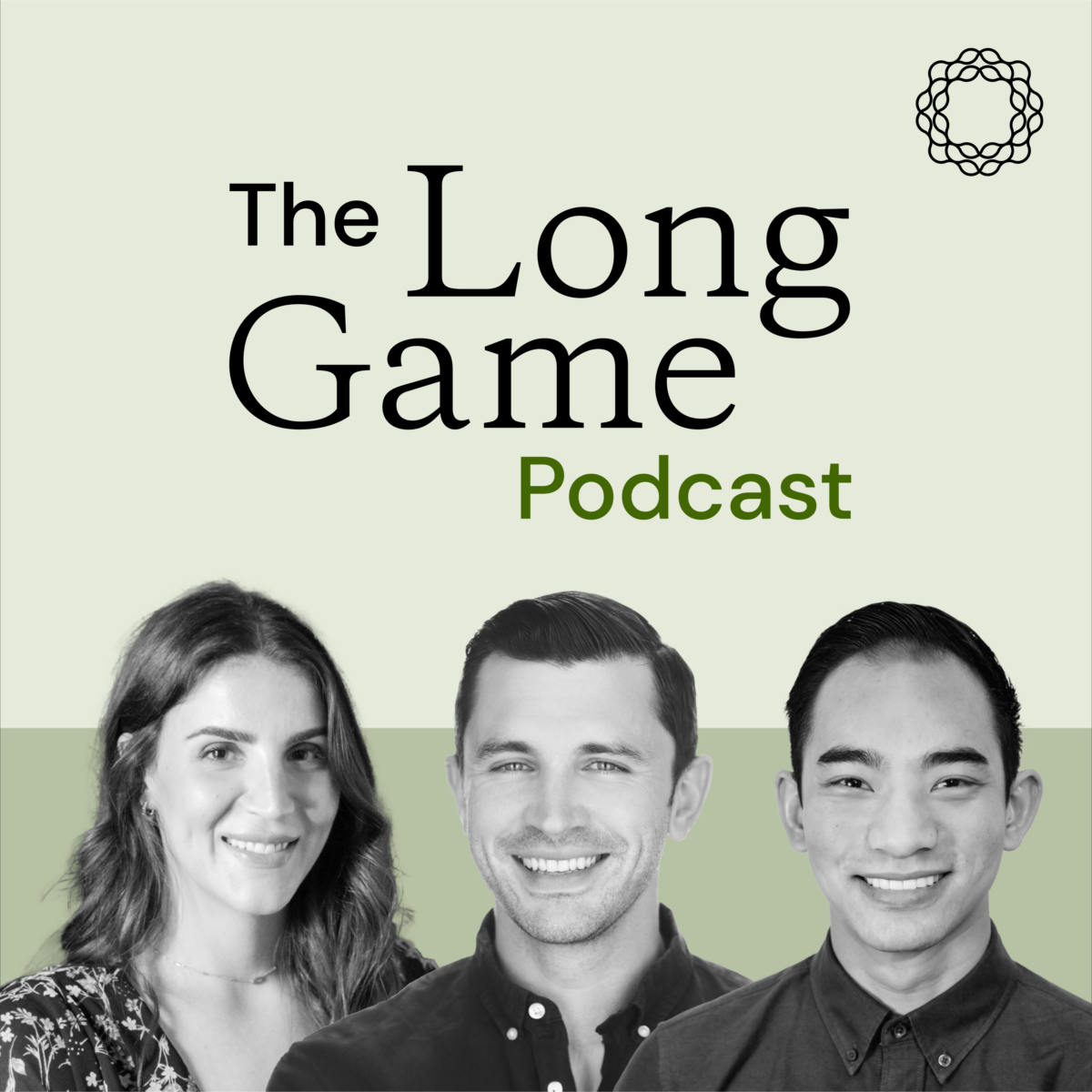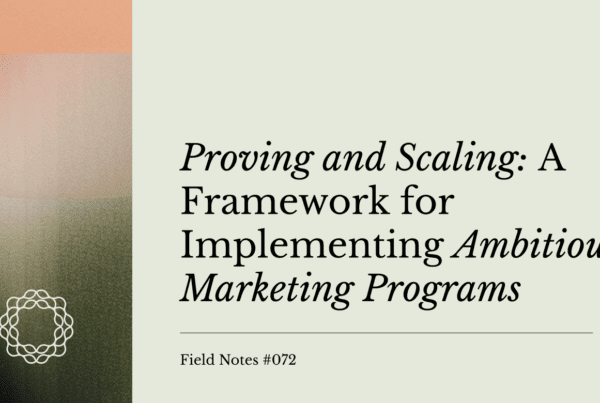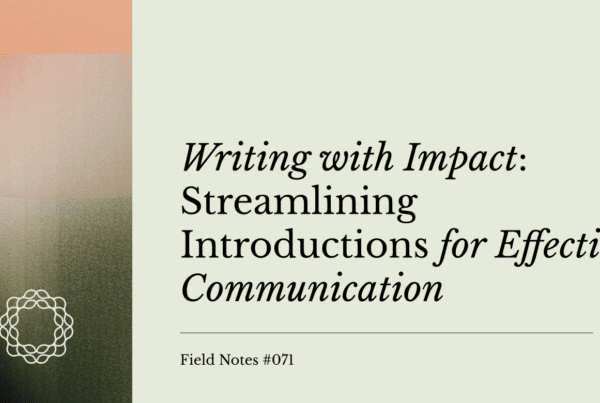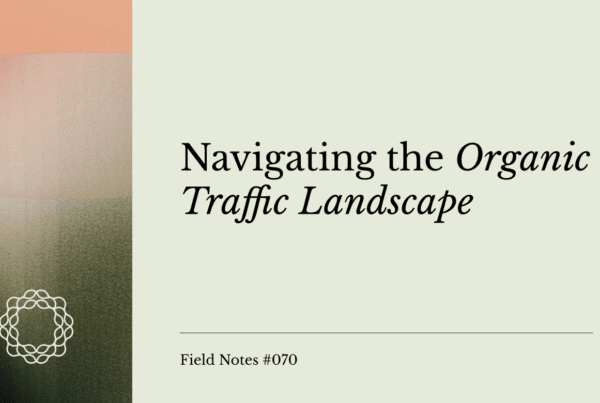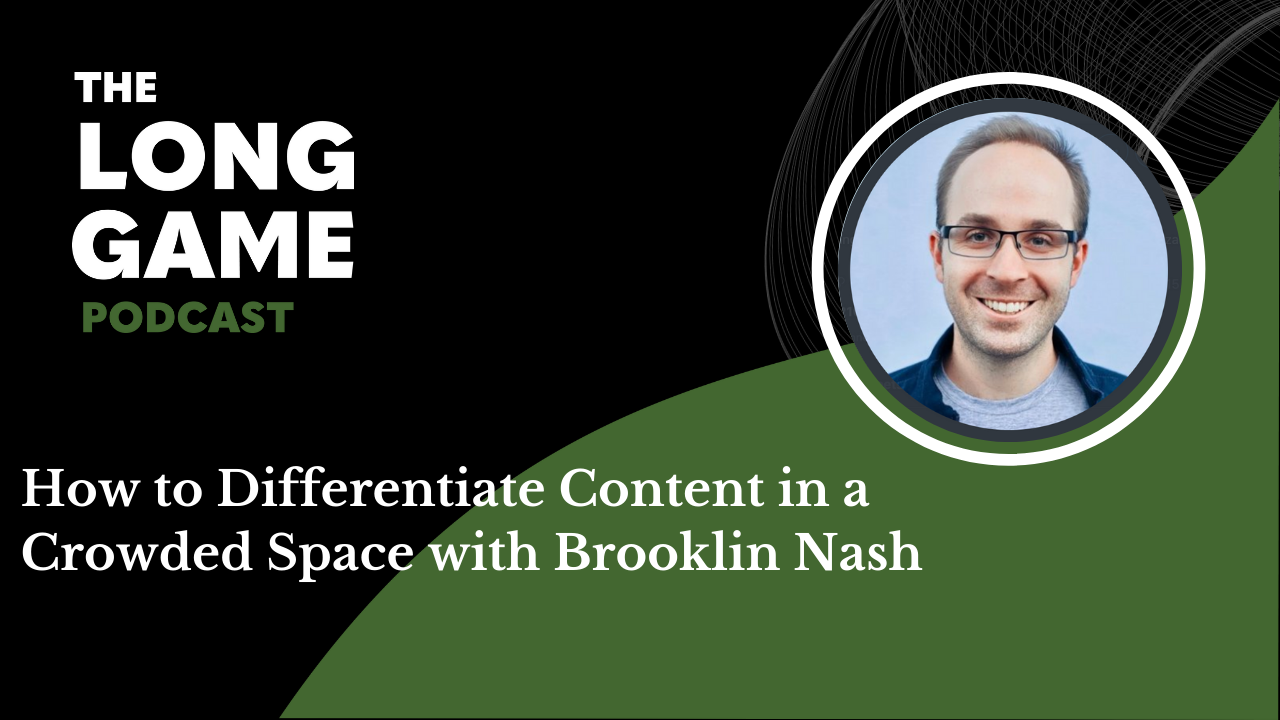
Do you call yourself a freelance writer or content marketer? There’s a fine line between the two, and the modern content marketing world is full of possibilities.
In this episode, we have on Brooklin Nash who has 8 years of content marketing experience. Outside of his full time role as Manager of Community Content for Outreach, he’s Head of Content at Sales Hacker. His clients include: Mixpanel, Intricately, MediaRadar, Metadata.io, and PostBeyond as a guest contributor, and he’s written for G2, Drift, Business2Community and MarketingProfs.
His full-time role at Outreach focuses on helping salespeople weave their content together, building up organic channels to drive revenue. Considering Brooklin fell into content marketing by accident, he’s finely attuned to what makes good content tick. He draws on his freelance writing roots and passion for learning to excel. In this episode, he shares why you should find a niche, seek out conversations, and experiment.
He lives in Guatemala and his guilty pleasure is young adult dystopian fiction.
Check out Sales Hacker
Check out Outreach
Follow Brooklin Nash on LinkedIn or Twitter
Listen to the podcast
Watch the video
Key Takeaways
4:05 – Find purpose in your work
Brooklin thinks about the traditional work-life balance struggle differently. His goal? To ensure that his work aligns with his life so there’s a sense of balance whenever possible.
“To me work-life balance doesn’t feel like this either/or type thing. And I think the phrase that maybe I’m more aligned with that I’ve heard floating around is work-life integration. And the biggest piece of that, or one of the biggest pieces of that, is finding purpose in your work. Because then it doesn’t feel like, oh, you cap out at 40 hours for your work before you get burned out, and then you can turn to the things that fuel you and fill you up. So it’s just finding what that purpose is, and then putting framework around it so that you don’t go down the negative side where you can just go become obsessed with a goal or your work or whatever it is. Because then if there’s purpose in it, that aligns with what your life is about, then it becomes easier to balance those out instead.”
12:47 – Find your content niche
It’s been said a thousand times, and Brooklin drove it home for us. Instead of offering broad services, work to find an area of interest that you can specialize in.
“Number one is to find a niche in your content, whether that’s e-commerce platforms or B2B sales tech, or whatever it is. Because early days, I was pretty much doing anything and everything. I was like a social media evaluator at one point, I was writing product descriptions for like fancy Swiss wristwatches, I was editing stuff for these DTC startups. And then just over time, I just gravitated towards the B2B stuff. It’s not even a niche. It’s just, oh, B2B versus B2C. That’s a lot more interesting to me for whatever reason. And then with B2B, then I slowly drove down into data platforms and now sales tech, and it just was a lot more interesting for me to work on. So definitely niche down in an area where it’s you find the subject matter, as a content marketer you find it interesting. Because then the work’s not going to go old.”
16:10 – Learn how to delegate
When you’re a strong writer, it’s hard to start delegating writing to other people. Brooklin explained that it’s not just because you’re the “best” writer out there, it’s because delegating requires setting clear guidelines.
“I don’t really think of myself as a perfectionist. It’s I think this is true of maybe lots of different personalities and lots of different roles, but it’s hard to let go of the idea that you could do it better, and then trust people to do it better than you and figuring out what level of guidance you need to give them so that they can do it better than you. And I don’t say that to say I’m the world’s greatest writer. It’s just, you know what your standards are in your mind. And it’s just a whole different skill set to be able to write like that, and be able to put the guidelines in place and the feedback in place and the communication in place and expectations in place that set people up to deliver at the level you could. Which I hope that’s coming across the right way. It’s not like me tooting my own horn that I can’t find anybody that’s as good as me. It’s more like it’s just a different set of skills to develop.”
29:45 – Tap experts for insight
The thing Brooklin loves the most? Not having to come up with content ideas from scratch. At Sales Hacker, most of the content his team puts out is centered on in-house contributors and community members.
“Why it’s so fun honestly, and why it stays fresh is because, so I said we worked with a handful of contractors. But we have one freelance writer at Sales Hacker, and we put out 12, 13, 14 pieces of content every week. So most of the content we’re putting out is based on our contributors and our community members. Whether it’s an article or a podcast interview or panelists on a webinar, we rely on the sales community. So then it just becomes a lot more about coordinating all that and pulling out the interesting parts, and editing a lot for people who aren’t writers. So the job is definitely different. But I really love relying on the practitioners, like the experts who are working in sales, versus trying to spin my wheels as a content marketer and try to understand what it feels like to get an objection in a demo. Because I haven’t had that experience.”
31:11 – Make time for experiments
One of Brookin’s best clients came from an experimental email campaign. He targeted about 60 leads in Sales Navigator and used best practices to reach out. The result was more impressive than he’d hoped.
“I launched my own cold email campaign, which I had never done, just to try it out. It was a lot of fun. I did took all the tips that I had read and written about and tried to put them into practice and it worked. I sent it out to I can’t remember how many. I tried to do more of a, it’s not ABM, but like more of the targeted approach versus spray and pray. I think 60 people, something like that. I went on Sales Navigator, identified who had either just started in their role or who was hiring, pulled out the ones that fit, who I’d want to work with, reached out to them, and just said Hey, I saw you just started. Or I saw you’re hiring. This is what I do. Let me know if I can help. And I think that the question was, ‘what are your 2020 content goals?’ Like just making it more about the goals versus ‘hi, this is me and this is what I do.’ And I landed one of our best clients. It’s been a little over a year. And they’re I’m not going to say favorite clients, but they’re really fun to work with. And we’re still working with them just from that one email campaign. And I didn’t really do much follow-ups, I didn’t put a ton behind the sequences. So if I were to repeat that every quarter or every month, I think it’d be a very repeatable way of driving new business.”
34:14 – Do cold outreach to companies doing content
The world is full of companies that are looking for content marketing help. Whether they had a small marketing team or a huge one, they are trying to make progress. All you need to do is convince the person in charge of the budget.
“I think there’s so much opportunity for content marketers, whether you’re a freelancer or an agency with a 30-person team. Because it might be overkill to say they’re already qualified, but they’re pretty close to being qualified before you even contact them. If they’re three months into their role or hiring for content marketers, either way, they’re going to need help with content. It’s hard to execute on your own. If you’re a sole marketer or even like a marketing team of three, it’s hard to get all the content out there. And almost guaranteed they’re going to be looking for help if they have a little bit of budget. So the only missing piece, really, for the qualification it’s budget. But they have everything else. They have the authority, they have the need. If the timing is right—backing up, in sales when you talk about qualification, they usually talk about BANT. And its budget, authority, need, timing. So you have three of them just by making sure you’re reaching out to the right person at the right time. And then it’s just a question of budget.”
40:57 – The best content marketing feels organic
We don’t mean necessarily free—but the best content marketing doesn’t try too hard. It should feel natural, educational, and useful to your audience.
“The content marketing I really like and I think does it well, is where you can highlight the product or the service in the content in a very natural way. And there’s so many great examples. Like HubSpot obviously is a great example of that. Even better because even Tim’s tweets, he’s saying, oh, I found this cool insight and he’s sharing the insight, but the screenshot is his tool. Which is so cool to me, I think it’s at its best where you can find such a product-market fit with your content that you’re just talking about what your audience wants to learn about. And you’re doing it through the lens of the tool. Or not through the lens of the tool, but you’re at least highlighting the tool in some capacity. We’re talking about employee motivation. And then here’s a demo CTA for our compensation platform. It fits.”
44:39 – Journalists make great content marketers
Brooklin is consistently impressed with content marketers who have a journalism background. He finds they are able to weave together a story in a compelling way, versus relying on recycling content that’s already published online.
“We just hired somebody at Outreach who is a former journalist-turned-content marketer. And I’ve been able to interact with others and see their content. I just am always impressed with content marketers who come from journalism, going back to what we were talking about before. Just because I think they just have practice with pulling the story out from the seven conversations they’ve had, versus Googling something and figuring out how to piece together the three articles that are in the top three spots in a different order so that it’s your own article. That’s crappy content marketing. Good content marketing looks a lot more like journalism.”
48:56 – Content marketing is tied to revenue
While the best content marketing may feel natural, it does have to be attached to a specific goal.
“At the end of the day, if you’re a content marketer not tying it to traffic or revenue, then you’re not really a content marketer. You’re just writing stuff. It has to be attached to a goal. And distribution, across all these channels, it’s not just writing the blog posts. It’s figuring out how to redistribute and get all the reach. So I understand both sides. I think what I landed on, and I’m probably only 65% on this side, is in general I do think of myself more as a writer, because of that purpose we talked about earlier. At the end of the day, whether I am working in a nonprofit, like I was, doing my own blog, which I want to do long-term, in-house content marketer, contractor pulling together sales marketing, at the end of the day it’s my job to pull out what the story is and connect the dots. And to me, that feels a lot more like writing than marketing. And that’s the interesting part of content marketing. The interesting part is the content.”
56:10 – Describing the writing process
Brooklin’s writing process starts with questions, leads to an outline planned around total word count, and ends with a quick self-editing session.
“It starts very broad and then slowly gets more and more specific. So I start by asking, if I’m working with the content marketing manager or director of marketing, asking very broad questions. Who should I be talking to? What are the goals? Who’s your audience? And then you get a step closer and you get more specific, and you start asking other people more specific questions. Around the same time, you start doing more outside research…I almost always created an outline. I don’t think I can operate without one. And I almost always assign a rough word count to outlines. Not because I’m worried about it being 1500 words versus 1700 words, but because I want to know how much real estate to give each section before I start.”
Connect with Omniscient Digital on social:
Twitter: @beomniscient
Linkedin: Be Omniscient
Listen to more episodes of The Long Game podcast here: https://beomniscient.com/podcast/
